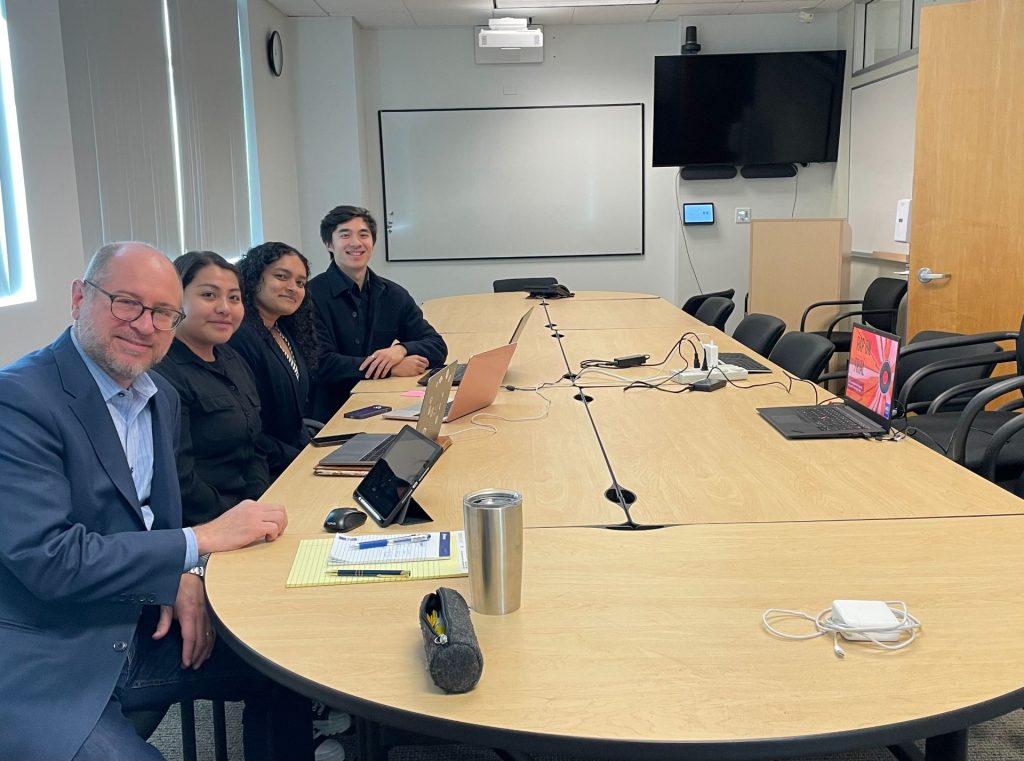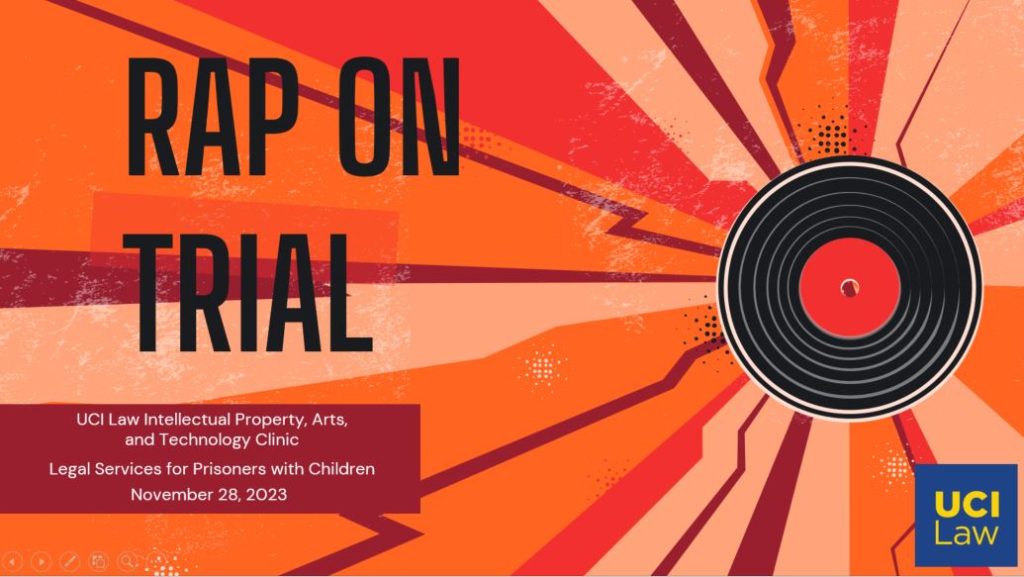On November 28th, the IPAT Clinic’s Rap on Trial project team presented an informative webinar to Legal Services for Prisoners with Children (LSPC). Certified Law Students Lamia Mansur, Vito Nguyen, and Carolina Garcia led the webinar together with Professor Jack Lerner. The team discussed the new Decriminalizing Artistic Expression Act (AB 2799), how it interacts with the Racial Justice Act as amended in 2022, and the retroactivity aspects of both laws. The team also discussed more generally how defense counsel can prevent the misuse of rap lyrics in court. The presenting members are part of this fall’s Rap on Trial project that focused on finalizing the Second Edition of the Rap on Trial Legal Guide. Professor Lerner, Professor Charis Kubrin of UCI Criminology, Law, and Society, and members of the IPAT Clinic first published the Guide in June 2021.
We were excited to present to LSPC staff and colleagues. LSPC works with communities impacted by the criminal justice system, and advocates for the release of incarcerated individuals to restore human rights and reunite families. LSPC promotes the awareness of structured racism in the criminal justice system and advances racial and gender justice through its advocacy. LSPC invited defense attorneys and other advocates to the webinar., and members of the IPAT Clinic also attended.
Professor Lerner initiated the webinar by giving background information on the misuse of rap lyrics in criminal trials. Often, prosecutors seek to use rap evidence as character evidence. Concerningly, the rap lyrics brought in often lack relevance to the crime charged or the probative value is alarmingly low compared to the risk of unfair prejudicial it presents. The Rap on Trial team went over how the defendant’s association with rap music can create a negative bias in jurors. The team highlighted that violent rap lyrics are disproportionally viewed as threatening, offensive, dangerous, and literal compared to the violent lyrics of other music genres.

(L to R.) Prof. Jack Lerner, Carolina Garcia, Lamia Mansur, and Vito Nguyen i n their makeshift webinar studio in the UCI Law Clinics office.
During the webinar, Ms. Mansur provided an overview of social science research demonstrating how the introduction of rap lyric evidence brings prejudice into the process. This research, including a landmark 2016 study by Professor Kubrin (with Adam Dunbar and Nicholas Scurich), shows that rap is more likely to be seen as threatening and offensive than other genres, and violent lyrics are often evaluated differently when the music is categorized as rap compared to other genres. Professor’s Kubrin study also highlighted that often participants believed that rap lyrics were more autobiographical than lyrics from other genres.
Mr. Nguyen presented on how defense counsel can utilize evidence rules to prevent or appropriately limit the use of rap lyrics in criminal trials. Rap lyrics can be improperly introduced when lack probative value because they are either fiction or hyperbole. Even worse, the use of rap lyric evidence leads to unfair prejudice because the evidence can trigger implicit bias and racial stereotypes, and can be misleading.
Ms. Garcia went over key legislative findings and the overall legislative intent expressed in AB 2799. In passing the law, the California legislature wanted to ensure that creative expression would not be used to introduce stereotypes and would not activate bias in the jury. Finally, the team went over the Racial Justice for All Act‘s retroactivity provisions, which will be implemented in four stages. The Act amends California’s Racial Justice Act to allow persons with convictions or judgements prior to January 1, 2021 to petition the court and seek relief if racial bias was proven to be present in their case. By 2026, the Act will apply to everyone.
